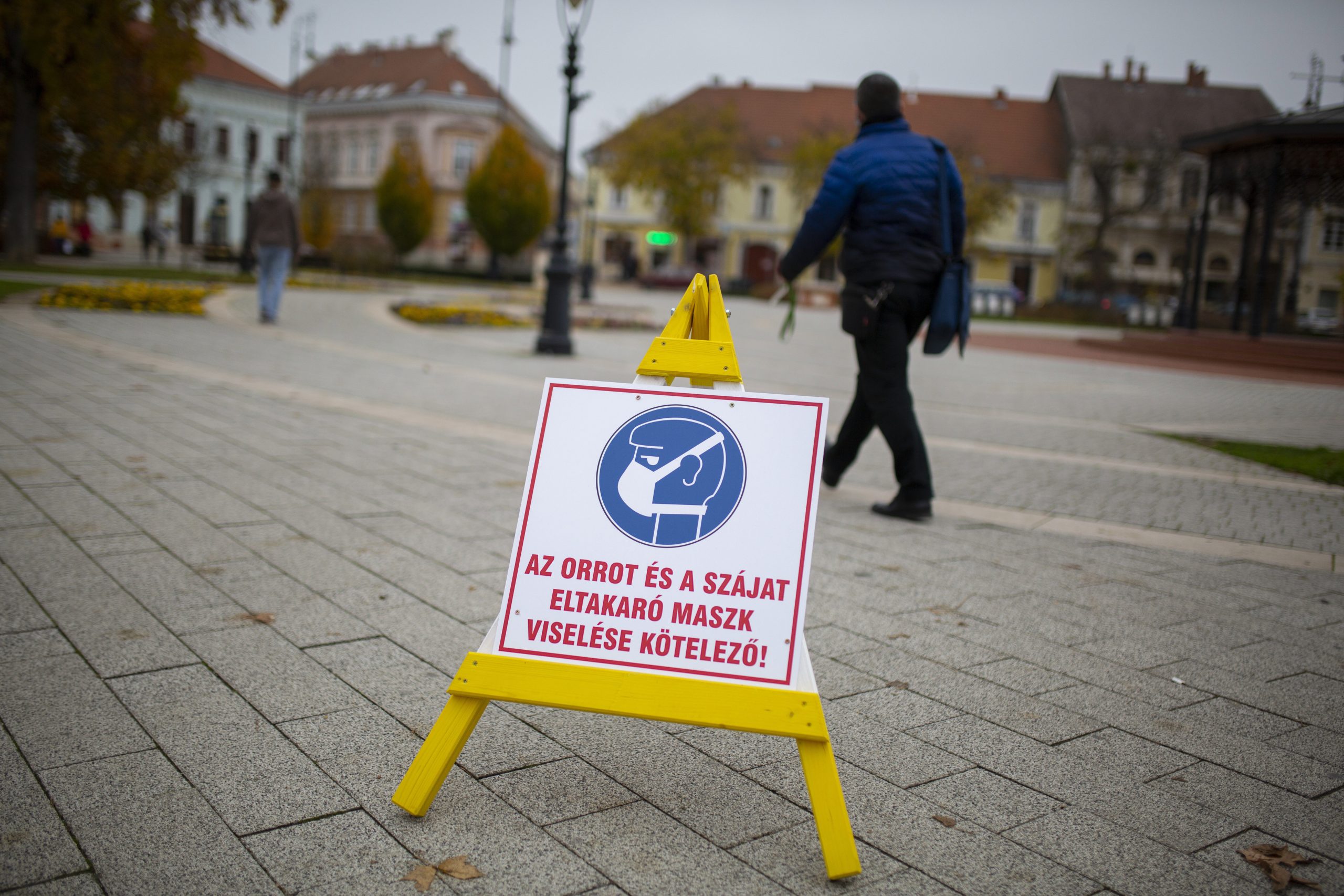
"The vaccine saves lives, and only the vaccine saves lives. Wearing masks and social distancing won’t help," PM Viktor Orbán said in a recent interview.Continue reading

As the damage of the coronavirus pandemic has grown worse over the past two months, health experts around Hungary have been consistently calling for people to wear masks and practice social distancing once again. The government’s position remains by the idea that social distancing and masks are not relevant enough to be mandated, a controversial position that goes against the recommendations of the World Health Organization.
Hungary’s Ministry of Human Resources announced at the end of August that “thanks to successful protection against the coronavirus and a high level of vaccination, no strict restrictions are warranted in everyday life.” Despite their claim, there has been a clear increase in the coronavirus cases in Hungary, and the number of new infections is reaching numbers seen in April and May.
In light of these events, Hungarian health professionals have been highlighting the relevance of safety precautions for the past few months, giving masks and social distancing continued relevance in Hungary’s current pandemic situation.
Virologist Gábor Kemenesi made a Facebook post two months ago to speak about the importance of masks. In it, he emphasized that face coverings are especially useful at preventing the spread of the virus in large crowds and closed areas, especially areas with poor air circulation which are frequented by many different people.
Currently mask-wearing is voluntary, but that des not mean that it is forbidden. There is countless scientific data proving that they work, and that they work well. I believe in science, this is why I wear it, and I invite everyone to do the same.”
In a similar call to action at the end of September, Ferenc Jakab, head of the National Virology Laboratory, said that despite the high level of vaccination in Hungary, disinfection, social distancing, and primarily the use of masks are “tremendously important.” In his video message, Jakab requested everyone at the University of Pécs to wear masks in the interest of their communities and colleagues.
Epidemiologist and member of the Hungarian government’s health advisory committee, Beatrix Oroszi placed an 80 percent national vaccination threshold as the variable that would justify a reduction of restrictions. Until that point, she believes masks, social distancing, and proof of immunity are in order for a cohesively effective defense against the virus in Hungary.
Oroszi has drawn up three possible solutions to the current situation. In the best-case scenario, the epidemic curve levels out as the number of people susceptible to infection is depleted, either through vaccination or recovery. The worse case would be if the vaccination rate remains the same, immunity is depleted over time, and the spread of the virus speeds up, increasing hospitalizations and deaths.
The worst-case scenario, Oroszi says, would be if the health care system is overwhelmed, the virus reaches especially vulnerable parts of the population, and a new virus variant or influenza epidemic shows up.
Not just individual specialists, but even health institutions are joining in reaffirming that not only vaccination, but masks and social distancing are in fact important for protecting people’s health.
Ágnes Galgóczi, department head at the National Public Health Center, says that the coronavirus levels measured in wastewater warrant further restrictions. Subsequently, she warrants the use of masks, saying that “we have reached the point where this is important, in closed areas, on public transit, both in the interest of vaccinated and unvaccinated individuals.”
The Hungarian Medical Chamber (MOK) released a statement in August urging everyone to maintain social distancing, wear masks in closed spaces, and regularly wash and disinfect their hands. Gyula Kincses, the President of the Chamber, called for the mandatory use of masks on public transport, in shops, and in areas where both vaccinated and unvaccinated people are in close contact.
The President of the Hungarian Academy of Sciences also joined in this position. Tamás Freund has recommended the government to reintroduce the use of Hungary’s immunity cards and masks for events with large crowds or vulnerable populations in enclosed spaces.
So far, the University of Pécs, the University of Debrecen, and Eötvös Loránd University (ELTE) have all mandated the use of masks indoors.
Even the Municipality of Budapest is considering the reintroduction of mandatory masks on public transit. Deputy Mayor Ambrus Kiss said that the city would reinstate the mandate, which many people are asking for, however, the municipality is not under jurisdiction to do so.
While there is a noticeable distinction between the position of health experts and the government, Prime Minister Viktor Orbán says the ruling is based on epidemiologists’ suggestions that “only vaccination helps.”
Of course, you can protect yourself by closing yourself in, with a mask, etc., but that will not protect you. This is a virus, the epidemiologists tell me, against which only vaccination can help.”
Speaking to Kossuth Rádió, Orbán told listeners: “don’t be under the illusion that the mask will protect us. The mask does not protect us.”
Not only is the Prime Minister’s position separate from that of health professionals, but it also goes against the recommendations of the World Health Organization as well. On their website, WHO states that along with physical distancing, washing hands, and keeping rooms ventilated, “Masks should be used as part of a comprehensive strategy of measures to suppress transmission and save lives.”
WHO also provides a how-to for mask-wearing, noting that fabric masks should be washed every day, and medical masks should be thrown out after use. Masks with valves should not be used.
Featured photo illustration by Balázs Mohai/MTI